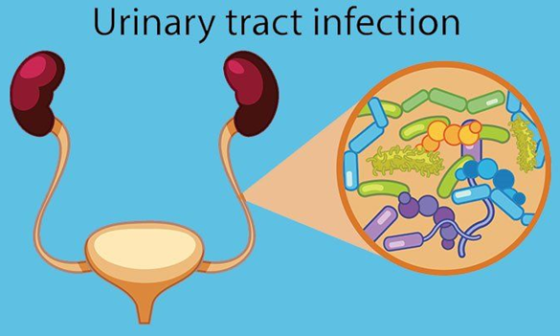Introduction
The incapacity to conceive following a year of unprotected sex is known as infertility, and it impacts millions of couples globally, including those in Nigeria. About 10 – 30% of Nigerian couples are reported to be infertile and many had previously not known the cause of infertility. The three main problems with infertility in Nigeria are perception, health-seeking behaviour, and the social impact of infertility. There is a negative perception of infertility problems, leading those affected to delay seeking medical attention.

Source: Evidently Cochrane
Wellahealth wants to use this article to discuss the several variables that cause infertility, including one or both partners. Knowing these causes remains essential to getting the right treatment for you and your partner. In this article, we will examine the top ten reasons for infertility in Nigeria and offer suggestions for resolving the problem.
Common Causes of Infertility
● PID, or Pelvic Inflammatory Disease
Infertility may result from damage to the fallopian tubes caused by an improperly treated or untreated infection of the female reproductive system. Infertility can result from blocked or damaged fallopian tubes, which stop eggs from entering the uterus. Surgical repair of the tubes or other approaches, such as in vitro fertilization (IVF), may be used as treatments.
● Endometriosis
Infertility may result from endometriosis, a disorder in which uterine tissue grows outside the uterus. When uterine lining-like tissue proliferates outside the uterus, endometriosis results. This disorder can impair fertility by blocking the fallopian tubes or preventing ovulation. It can also cause pain, heavy menstrual flow, and scarring. Surgical intervention and hormone therapy are available treatment options.
● Polycystic Ovary Syndrome (PCOS)
Ovulation and egg production are impacted by a hormonal imbalance known as polycystic ovary syndrome, or PCOS. PCOS, or polycystic ovary syndrome is one of the most prevalent hormonal conditions affecting fertile women. PCOS can cause ovarian cysts, which can interfere with ovulation and result in infertility, irregular menstrual cycles, and high levels of male hormones. Fertility results can be improved by early diagnosis and treatment with medication and lifestyle modifications.
● Uterine Abnormalities
Fertility can be hampered by non-cancerous (benign) growths in the uterus called uterine fibroids. Implantation and pregnancy growth might be hampered by structural abnormalities of the uterus, such as fibroids, polyps, or congenital deformities. Ultrasonography and hysteroscopy are common imaging techniques used for diagnosis, and surgery may be necessary to treat these problems
● Male Infertility
Problems with sperm motility, count, or clogged ducts can all have an impact on a man’s ability to procreate. A low sperm count, poor motility, aberrant anatomy (hypospadias), or aberrant sperm morphology are some of the causes of male infertility. A boy-child who is infected by the mumps virus at or around puberty is at high risk of infertility, as inflammation of the testicles may affect sperm production. Genetics (Klinefelter syndrome), hormonal imbalances, infections, and lifestyle decisions like smoking and binge drinking are just a few examples of the causes. Male infertility can be addressed with the use of assisted reproductive technology and drugs, as well as semen analysis.
● Weight Abnormalities (Obesity, Underweight)
Obesity increases the risk of infertility in both men and women. Being underweight and obese can result in hormonal imbalance and infertility. PCOS, other obesity-related disorders, and being underweight are associated with irregular menstrual periods and decreased ovulation. Fertility can be enhanced by maintaining a healthy weight with a balanced diet and frequent exercise.
● Hormonal Imbalance
Fertility may be hampered by thyroid, pituitary, or adrenal gland problems. imbalances in the hormones produced by these organs can lead to fertility and ovulation problems. Ovulation and the regularity of menstrual cycles can be interfered with by conditions such as thyroid abnormalities or luteal phase deficiencies. Reducing hormone levels and increasing fertility can be accomplished with the use of hormone medication and lifestyle changes.
● Lifestyle Factors
Fertility is greatly impacted by lifestyle decisions, infertility can be caused by several things, including frequent drinking, smoking, eating a bad diet, medications (steroids), and not getting enough exercise. Additionally, the use of anabolic steroids by athletes especially male athletes increases their risk of infertility. Reproductive health can be improved by leading a healthy lifestyle that includes a balanced diet, frequent exercise, and abstaining from tobacco and illicit drugs.
● Occupational and Environmental Factors
Fertility can be affected by job hazards and specific environmental pollutants. Reproductive health can be impacted by chemicals including radiation, heavy metals (like lead), and pesticides. Reducing exposure and putting safety precautions in place can help lower the chance of infertility caused by environmental causes.
● Advanced Age
Age has a significant role in both male and female fertility. Men may see a reduction in sperm quality after 35, while women may see a loss in egg quality and number as they age. Age-related infertility can be addressed with fertility treatment options such as assisted reproductive technology (IVF) or egg freezing.
Conclusion
Numerous factors contribute to infertility, and many of the causes can be controlled or cured with the right medical attention and lifestyle changes. Managing infertility entails being aware of these typical causes, getting prompt medical treatment, and thinking about preventative measures. To increase your chances of a successful pregnancy, if you or anyone is having trouble conceiving, please speak with medical specialists for personalized diagnostic and treatment recommendations.
Wellahealth’s affordable health plans afford you confidentiality and easy consultation. To speak to a healthcare professional for as low as N2k/month, send a WhatsApp Message today!
Dr. Ifeoma M. Uduh, Dr. John Afam-Osemene






